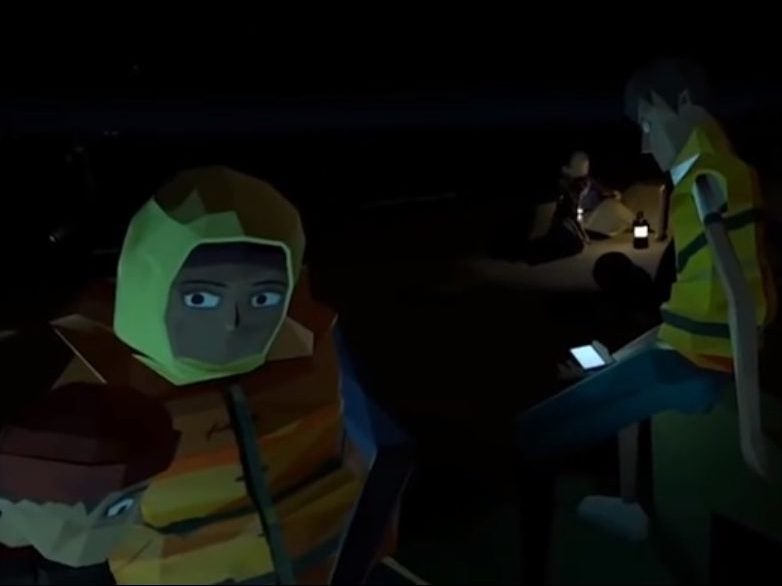
The BBC has begun using virtual reality technology in its current affairs coverage.
The corporation has revealed a handful of VR videos that are now available to download from BBC Taster, its platform for experimental projects, with more soon to be released.
Among them is We Wait, created from BBC News interviews with refugees, that puts viewers “alongside a terrified Syrian family crossing the sea” in a computer-generated scenario.
The piece claims to transport the viewer “into the heart of the refugee crisis” and is by far the most current of the new offerings, which also include an historic look at the 1916 Easter Rising in Ireland.
Published last week, it follows April’s release of 6×9 from The Guardian that aims to give viewers an insight into solitary confinement by putting them inside a virtual US prison cell.
The move toward fully-immersive VR stories follows the arrival of 360-degree video, which the BBC has also used to put viewers on the parade ground for the Trooping of the Colour. The two are distinct, despite many publications billing 360-degree video as “virtual reality”, with a full VR video production being more akin to a video game and allowing for greater interaction.
In a blog post last week, Will Saunders, editorial lead for BBC Taster, said: “The main difference is that VR is more interactive and immersive than 360 degree video, which is very much as it sounds – a video played out in 360 degrees around the viewer.
“However, both have the potential to give viewers a sense of presence. This is interesting to us as programme makers as it can help make people feel like they’re at the heart of the action or the story, which could help future audiences better understand important current affairs, news, science and history topics or give them a new perspective.”
Both We Wait and Easter Rising: Voice of a Rebel by the BBC require the Oculus Rift VR headset to view them, which costs £416 ($599) and is currently only available to pre-order.
Saunders said the BBC’s “early experimentation” was to help the corporation “better understand emerging technology and new mediums, explore the potential for future audiences, and see what kind of role the BBC should, or shouldn’t, be playing”.
He said it was “uncertain” where experiments with “immersive technologies” would take the BBC, adding: “They offer a glimpse of the promise of VR and what immersive experiences could provide to audiences, but they also bring new challenges we need to better understand.
“This is very early days, but these experiments, and the audience and industry feedback we can get from BBC Taster, are helping us do just that – helping inform any strategy the BBC may need in future.”
Email pged@pressgazette.co.uk to point out mistakes, provide story tips or send in a letter for publication on our "Letters Page" blog
